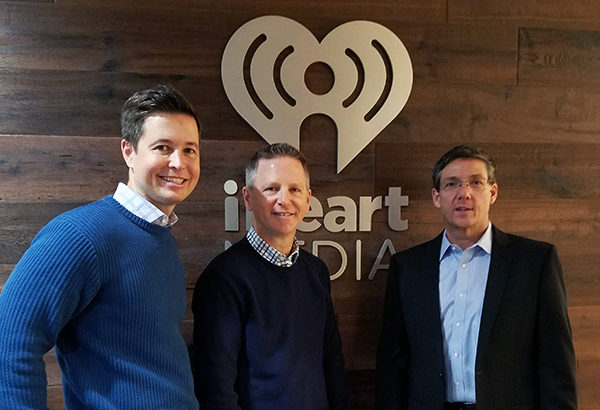To sum up the HingePoint Technology Manifesto: Let’s make an agreement to work on what matters.
Let’s stop the madness that is ensuing in many of our offices.
It’s time to get back to working on what matters. It’s time to stop letting technology determine how we do our work.
Now is the time to dictate how technology will do our work for us.
Technology is supposed to be the answer to all our troubles. But something is happening to many of us. We are becoming slaves to the technology at our offices.
The worthless workflows and processes we have in place and the no-good technology tools are negatively impacting the bottom line for our business and our personal lives.
If we don’t make a change soon, we’re going to become an overworked, unproductive, burned out, always-connected and always-on society with little meaning to our work.
Instead of taking my word for it… let’s look at the data.
—
We’re overworked
In 2006 I quit my day job and was saved. I realized how bogged down corporate processes had made me and how overworked I had become because of the systems the company chose to use.
And it didn’t just influence how I worked. It influenced how I lived. How I treated my wife and kids and what kind of person I had become.
It’s no secret that professionals in America are overworked. Technology is chained to our hands and sometimes blocks us from working on or doing what really matters in work and life.
“Forty percent of U.S. employees feel overworked or burned out,” according to the Staples Business Advantage Workplace Index 2016. The report also found that the majority of employees (59%) believed that decreasing their workload could lead to less workplace stress.
—-
Technology is Not Making Us More Productive
The Bureau of Labor Statistics recently reported that productivity in the United States “has been growing more slowly in recent years — and it has dropped for the past three quarters.”
Princeton professor Alan Blinder told NPR that one culprit is that “businesses aren’t investing enough in better tools” for their employees.
After the information technology revolution of the 1990s, most companies have stopped looking for more efficient ways to do their work.
Many are stuck with using decade old tools.
Email and the Internet are still the dominant tools Americans use in the workplace, according to a Pew Research Center study.
“Some see these tools as increasing productivity and offering more flexibility for America’s workforce; others say they decrease productivity and pressure workers to be constantly connected to their workplace.”
When the desktop computer came out, promises were made that life would be easier. We started thinking that technology was another way to be productive. The terms almost seemed synonymous: technology tool and productivity tool.
But now we are actually getting less finished. Especially when we rely on tools that are two decades old.
—-
We’re Burned Out by Busywork
If not implemented correctly, the productivity tools we use can and do actually stifle progress. Sometimes our employees are burned out.
Doctors recently stated that they “loathe” the busywork from computers. It’s even attributed to doctor burnout.
Digital busywork “eats up time they would otherwise spend with their patients, which is where a large number of physicians derive professional pleasure.”
“The introduction of computers into the examination room has the potential to shift physicians’ focus away from the patient and the human interaction,” the study authors write, “which is a source of meaning for physicians.”
If doctors are having trouble focusing on what truly matters in work—their patients—imagine how the rest of us are doing?
—
The Always-On Society
Studies show that the average person opens his or her smartphone 150 times a day. Even if we just looked at our phone for one minute at a time—which you and I know we do much more—we’d have wasted more than 2.5 hours a day by simply looking at our phone.
Work has seeped into our coveted personal life. We are not a more productive society. We are an always-on society. Our laptops and phones never turn off. If a business crisis arises—no matter how big or small—we are expected to answer no matter what.
—
The Busywork Era
In addition to the always-on society, many of us cannot exclusively work on what matters.
Counter-intuitively, we will get a new software tool off the shelf and expect it to revolutionize our ability to get work finished.
Many times the way we work is broken. It’s not efficient. We focus more time on busy work and collecting data than actually strategizing, analyzing and making the most informed business decisions.
If you don’t have the right processes at work that gets rid of busywork AND you have this always-on mentality… how good do you think your work is really going to be? More importantly, how do you think your life is going to be?
This formula spells disaster.
So what’s the answer?
Believe it or not, technology is not the entire answer. Technology does not equal productivity.
The answer comes from the businesses and people who take a stand and say, “We can NO longer work inefficiently to support our existing technology.”
The solution is to reinvent how we use technology to support the most efficient way to work.
Award-winning productivity expert Maura Thomas recently expressed this sentiment in the Harvard Business Review.
“Productivity, similarly, is also a combination of skill and tools, for both organizations and individuals. Regardless of the software, apps, and gadgets that a company invests in for its employees, those tools aren’t going to make the employees more productive unless they are also taught a solid methodology with which to use those tools.”
With every new technology initiative, training is critical, but so is understanding the fundamental problem that needs to be solved. To successfully implement new technology, a business must also understand the fundamental elements that make up their work.
Ultimately we need to understand what is blocking us from focusing and working on what matters.
—
I think you actually can exclusively work on what matters if you reinvent how you work with the right technology.
That’s what HingePoint does. We make technology work for you so you can work on what matters in a sane and productive way.
What should you do right now?
Assess whether technology helps or hinders your ability to work on what matters.
If that’s technology, then change how you use it. If it’s a process a the office, change it.
Once you know where you stand, go to war on anything that doesn’t serve your customers. Go to war on anything that prevents you from solely focusing on what matters.
That’s the HingePoint Way. That’s what we do. We go to war on the things blocking us from working on what matters.




